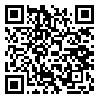BibTeX | RIS | EndNote | Medlars | ProCite | Reference Manager | RefWorks
Send citation to:
URL: http://jpcp.uswr.ac.ir/article-1-161-fa.html
Objective: The purposes of this study were to examine the relationships between personality traits, cognitive emotion regulation strategies and impulsive behaviors of borderline personality disorder, and to explore which personality traits and cognitive emotion regulation strategies can better predict and explain the impulsive behaviors in borderline personality disorder.
Methods: This study was a cross-sectional study design. The participants consisted of 78 patients with borderline personality disorder. Patients were recruited from health and medical centers in Tehran, Iran. The Sample was selected based on judgmental sampling. The SCIDII- PQ, Structured Clinical Interview for DSM-IV Axis II (SCID-II), NEO-PI-R, Cognitive Emotion Regulation Questionnaire (CERQ) and Impulsive Behaviors checklist were used for diagnosis and assessment. Pearson Correlation and Multivariate Regression Analysis has been used for data analysis. All statistical analyses were performed using the SPSS 16.
Results: Findings indicated that neuroticism and openness significantly correlated with impulsive behaviors (r=0.312 and 0.280 respectively, P<0.001, P<0.05), and can predict impulsive behaviors in borderline personality disorder. The results also showed that, selfblame, other blame and positive refocus positively correlate with impulsive behaviors (r=0.32, 0.31 and 0.27 respectively, P<0.001, P<0.05). Also significant beta weights were positive for self-blame and other-blame. Those results partially confirmed existing studies.
Conclusion: Overall, findings showed that neuroticism, openness, self-blame and other blame were significant predictors of impulsive behaviors in borderline personality disorder
دریافت: 1392/4/17 | پذیرش: 1392/8/21 | انتشار: 1392/10/11
| بازنشر اطلاعات | |
 |
این مقاله تحت شرایط Creative Commons Attribution-NonCommercial 4.0 International License قابل بازنشر است. |

